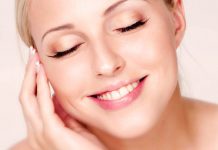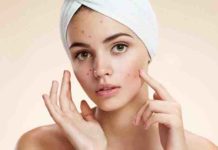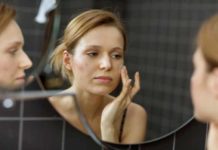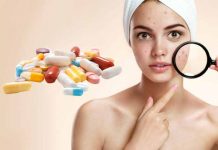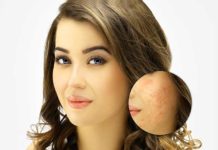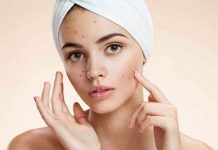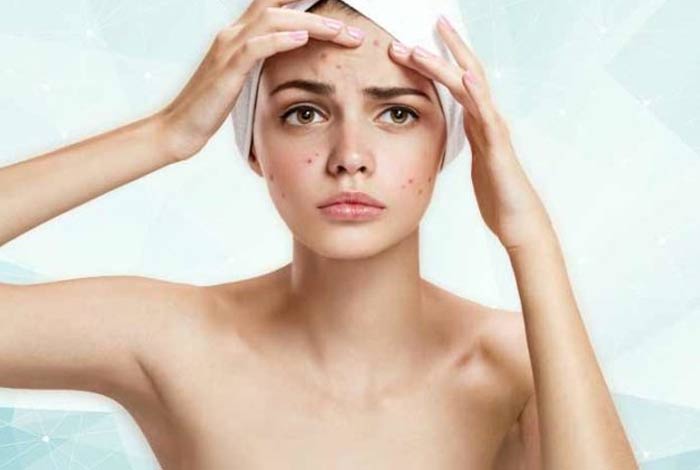
13 Essential Home Remedies for Acne

What is Acne?
Everyone wants a clear and radiating skin! And why not? It makes the person look beautiful and more confident. Unfortunately, there exists a couple of hurdles in the path to attain and maintain a healthy and glowing skin. Acne is one such black sheep that ruins a person’s desire for clear skin. It is one of the most common skin ailments, and affects nearly 85% of the people at some point of time in their lives.
Acne is a skin condition, which occurs when there is a swelling due to bacterial infection in the skin pore clogged with a plug made of sebum, hair follicle and skin cells. It results in spots, oily and painful skin. It develops on the face, neck, shoulders, back and chest. They can be of two types – acne vulgaris and acne rosacea – that affect adolescents and adults, respectively. A pimple is the outcome of blockage occurring due to dead skin cells and sebum. A case of severe acne generally results in the formation of pimples.
What Causes Acne?
Acne is most commonly linked to hormonal changes occurring in puberty, but it can start at any age. Acne begins when the pores get clogged. Dead skin cells are produced every day that rise to the surface of skin pores from where these cells can be shed out. When the skin produces excess amounts of sebum under the influence of certain hormones, these dead cells get stuck together and trapped in the pore. Bacteria, Propionibacterium acnes (P. acnes), which live on the skin, sometimes get trapped inside the pores, where it gets an ideal environment for multiplication. As the bacterial load inside the pores increases, it subsequently leads to inflammation. If this inflammation spreads to deeper layers of the skin, an acne cyst or nodule develops.
There are numerous myths involved with what causes acne. Chocolates and greasy foods are often blamed for it, but there is a little evidence to prove it. Another common myth is that acne results from a dirty skin. However, pimples and blackheads are not known to be caused by dirt. While stress is usually regarded as a cause of acne, the reality is it only aggravate the condition.
Common symptoms of acne include whiteheads, blackheads and pimples.
Dermatologists suggest acne should be allowed to run its course. Without proper treatment, it can result in the formation of dark spots and permanent scars. Having a chronic case of acne can decrease a person’s level of self-confidence. Thankfully, there are a couple of natural ways to heal acne.
Acne can be managed effectively at home either by using some easily available ingredients or making a few lifestyle changes. Here is a list of 13 effective home remedies that can help cure acne:
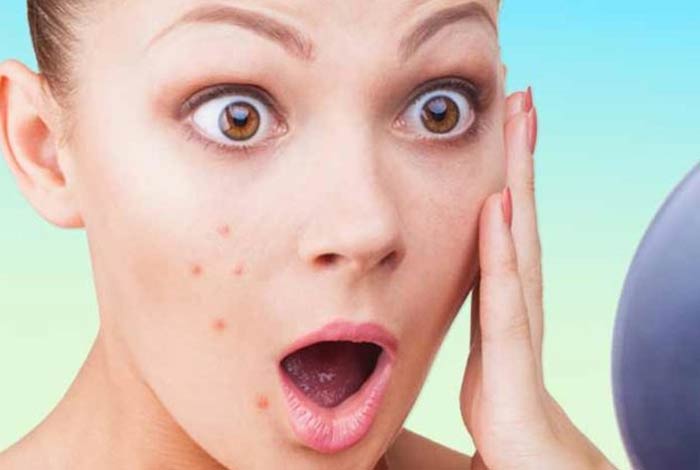
1. Apple Cider Vinegar
Apple cider vinegar (ACV) is made from the unfiltered juice obtained by pressing apples. It is known to possess antibacterial properties. It contains a number of organic acids like succinic acid and lactic acid that kill P. acnes, prevent scarring and improve appearance of scars. Apple cider vinegar is also known to help in drying up excess oil that causes acne.
How to Use:
- Mix one part of apple cider vinegar with three or more parts of water depending on your skin type
- Cleanse your skin and gently apply the vinegar-water mixture using a cotton ball.
- Let it sit for 5-20 seconds, then wash and pat dry your skin.
- Repeat the process 1-2 times a day as required.
It should be noted that applying apple cider vinegar without dilution or increasing the frequency of application of ACV can result in skin burns and irritation; hence, user discretion is advised.
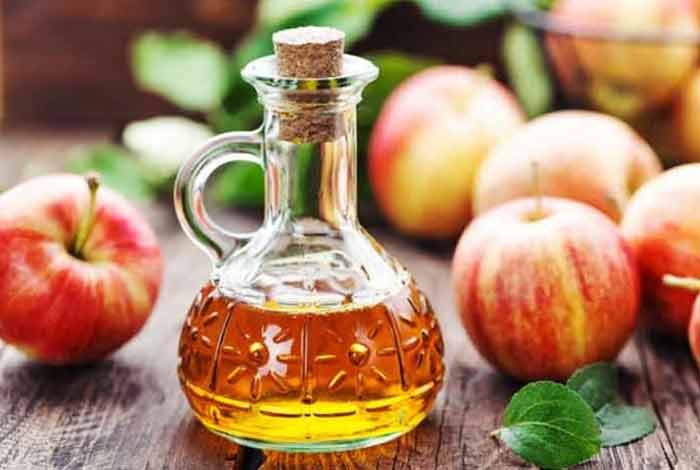
2. Zinc Supplements
Zinc is an essential micro-nutrient that helps in maintaining the structure of proteins and helps in cell growth, metabolism, hormone production and functioning of immune system. It is found that people with acne have a relatively lower concentration of zinc in their blood than people with clear skin. Zinc supplements are thought to reduce acne.
Zinc is known to kill P. acne, which cannot develop resistance to zinc. Hence, it can be used to treat acne in patients with antibiotic-resistant bacteria. Zinc reduces inflammation caused by the bacteria and decreases its effectiveness. Zinc also prevents clogging of pore. Zinc is also known as dihydrotestosterone (DHT)-blocker, i.e., it blocks the effect of hormones on skin. It is also known to have antioxidant effects.
By consuming 30-40 mg of elemental zinc each day, acne outbreaks can be effectively reduced. Excess consumption of zinc results in adverse results, such as stomach pain and gut irritation.
Zinc is a reactive metal and hence, occurs in the form of various compounds in nature. Zinc oxide is known to contain 80% elemental zinc. Zinc can be taken as zinc gluconate.
Applying zinc directly to the skin does not help get rid of acne as zinc is not readily absorbed through the skin.
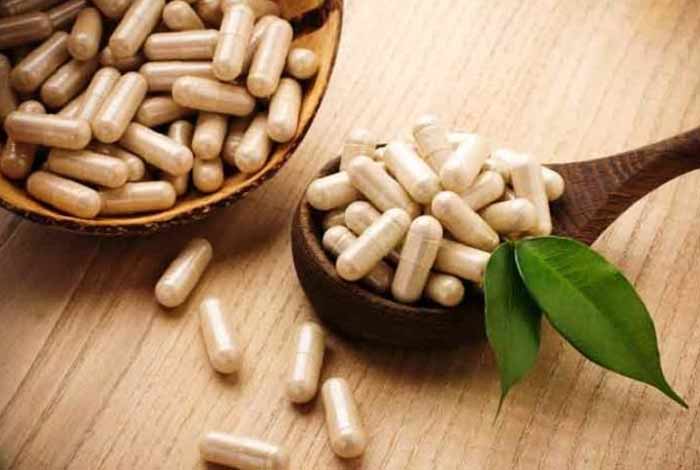
3. Honey and Cinnamon
Honey and cinnamon are known to possess antioxidant properties, and known to reduce the impact of acne on the skin more effectively than medicines like benzoyl peroxides and retinol that are used in treating acne. Honey and cinnamon also possess antibacterial and anti-inflammatory properties.
Anti-inflammatory, antibacterial and antioxidant effects of honey and cinnamon cannot treat acne but can help reduce the symptoms of acne.
How to Prepare a Honey-Cinnamon Mask:
- Mix 2 tablespoons of honey with 1 teaspoons of cinnamon to form a paste.
- Cleanse your face, apply the mask on your face and other affected areas, and let it dry for 10-15 minutes.
- Rinse and pat dry your skin.
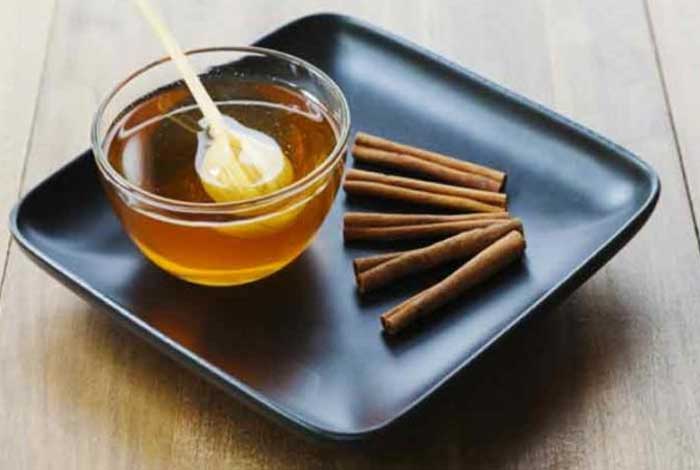
4. Tea Tree Oil
Tea tree oil is a volatile oil with a camphor-like odor. It is extracted from the leaves of myrtle tree, Melaleuca alternifolia, native to Australia.
It is known to possess antibacterial and anti-inflammatory properties. It has been used in traditional medicines for about a century to treat athlete’s foot, eczema, psoriasis and other skin conditions, in addition to acne.
It is toxic when ingested through mouth. It should only be used for topical applications in an extremely diluted form. It should not be applied in or around mouth.
How to Use:
- Mix 1 part of tea tree oil with 9 parts of water, and prepare a mixture.
- Cleanse your face and apply the mixture on the affected areas with a cotton ball carefully.
- Apply moisturizer if required.
- Repeat the process once or twice a day as required.
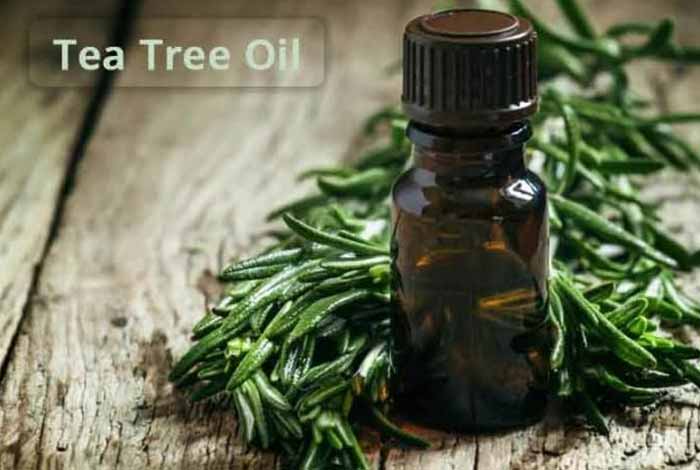
5. Green Tea
Green tea is known to be rich in antioxidants and applying it directly to the skin can help reduce acne. Flavonoids and tannins present in green tea are known to possess antibacterial and anti-inflammatory properties. The main antioxidant present in green tea – epigallocatechin-3-gallate (EGCG) – is known to decrease sebum production, inflammation and growth of acne bacteria in people with acne-prone skin.
Application of 2-3% of green tea extract can be beneficial. There are numerous topical preparations, including creams and lotions, that contain green tea oil. It can also be used directly at home.
How to Use:
- Soak green tea in boiling water for 3-4 minutes.
- Allow it to come to room temperature.
- Cleanse your face, and apply it using a cotton ball or pour it into a spray bottle and apply directly.
- Allow it to dry and then, rinse your skin with water, and pat dry.
Remaining tea leaves can be added to honey to prepare a face mask.
There is no research to confirm the benefits of drinking green tea for treating acne. However, it reduces blood sugar and insulin levels that contribute to acne development.
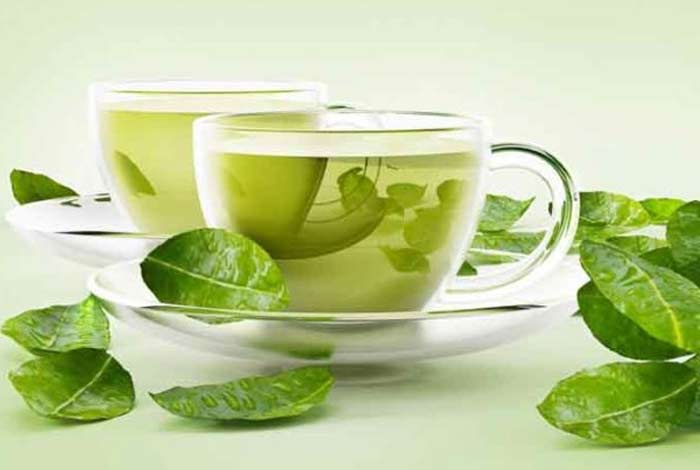
6. Witch Hazel
Witch hazel is an astringent compound obtained from the leaves and bark of witch hazel shrub, Hamamelis virginiana, found in North America. It is known to contain tannins that have antibacterial and anti-inflammatory properties. Hence, it is used to treat a couple of skin conditions, such as dandruff, eczema, burns, acne, varicose veins, bruises and insect bites.
There are a number of studies to indicate the usefulness of witch hazel in fighting bacteria, decreasing inflammation and aiding healing process. There are no studies to prove the effect of witch hazel on acne alone.
How to Use:
- Mix 1 tablespoon of witch hazel bark with 1 cup of water in a saucepan.
- Let it soak for 30 minutes and then bring it to the boil temperature.
- Reduce the flame and let it simmer for another 10 minutes.
- Remove it from the flame and let it cool for 10 minutes.
- Strain and store the mixture in an airtight container.
- Apply it once or twice daily after cleansing your skin using a cotton ball.
Witch hazel extract containing products can be bought from stores, but it should be noted that most of the tannins are lost during its processing.
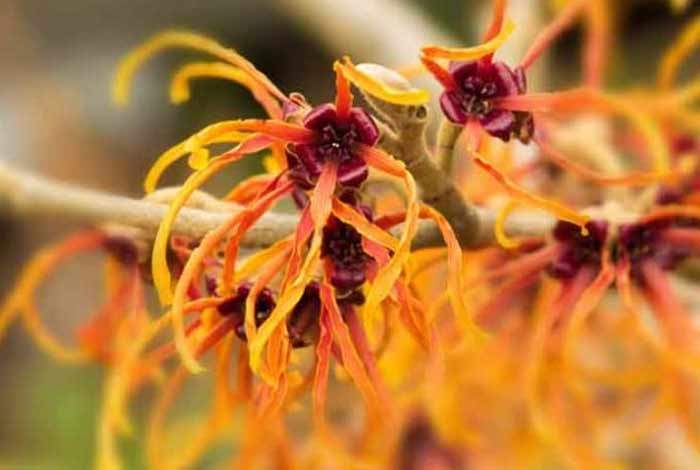
7. Aloe Vera
Aloe Vera is a plant growing in the tropical regions that contains a clear gel in its leaves. The gel is known to have a number of medical benefits and hence, used for treating rashes, burns, abrasions and other skin conditions. Aloe Vera is known to contain salicylic acid and sulfur that are used extensively to cure acne.
How to Use:
- Scrape the clear gel from Aloe Vera leaf using a spoon.
- Apply the gel directly on a clean skin.
- Repeat once or twice a day or as desired.
Aloe vera gel can be bought directly from the store, but it should be made sure that it contains only the extract and no added chemicals.
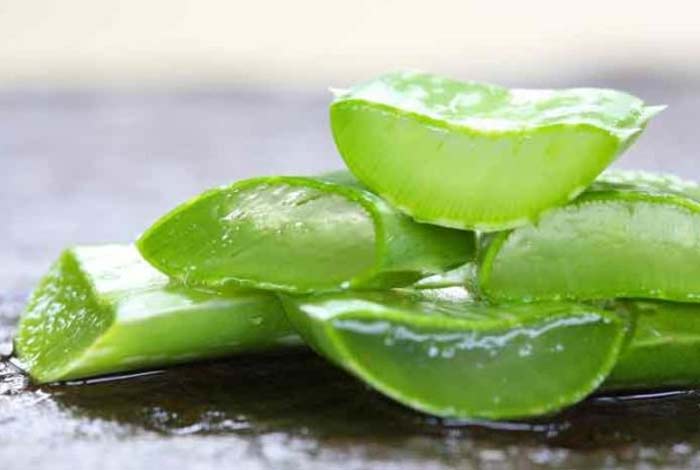
8. Fish Oil Supplement
Omega-3 fatty acids obtained from fish are known to possess a number of health benefits due to the presence of eicosapentaenoic acid (EPA) and docosahexaenoic acid (DHA).
EPA helps in managing excess production of oil in the skin; thus, keeps the skin hydrated and prevent acne. High concentrations of EPA and DHA are known to reduce inflammation, thereby decreasing the risk of developing acne.
There is no specific dose of Omega-3 fatty acids for treating acne. However, 250-500 mg of omega-3 fatty acids is said to show the desired effects.
Omega 3 can also be obtained from a vegetarian diet comprising walnuts, chia seeds, ground flaxseeds and a fish diet consisting of sardines, salmons etc.
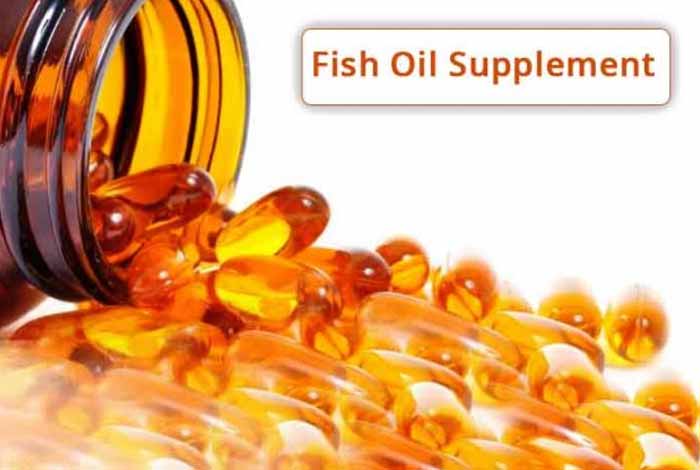
9. Exfoliation
Exfoliation helps unclog the closed skin pores and hence, prevent acne development. It is the process of physical removal of the topmost layer of the skin using a brush or any other abrasive material. Alternatively, it can be done by chemicals that dissolve skin cells.
Once the topmost layer is removed through exfoliation, the inner layers of the skin become more accessible to topical acne treatments like masks, ointments and lotions.
It is also known to improve the appearance of the skin through microdermabrasion, a method used for exfoliation, which lightens the acne scar marks.
However, limited data is available to confirm the usefulness of exfoliation in acne prevention and treatment.
How to Prepare Scrub at Home:
- Mix equal parts of sugar or salt with coconut oil.
- Scrub affected area with the mixture and rinse well.
- Exfoliate as often as required, up to once a day.
It should be noted that ex-foliating too often can remove the skin cells prematurely, which is harmful. Over-exfoliation can lead to premature aging of skin. It can also trigger inflammation, and cause breaks in the skin, which can become entry spots for bacteria, fungus and virus.
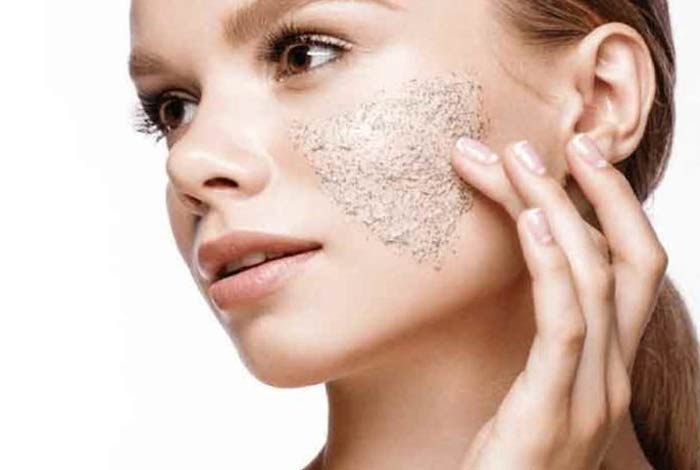
10. Low Glycemic Load Diet
A food’s glycemic index is the measure of its ability to raise blood glucose levels. Foods that have high glycemic index are thought to induce production of sebum. These include sugary soft drinks, cakes, candies, white bread and other processed foods.
Foods with low glycemic index include fruits, vegetables, pulses, nuts, whole or minimally processed grains.
11. Decreased Dairy Consumption
There is a highly debatable relationship between acne outbreaks and dairy consumption. Drinking milk and consuming dairy products can cause increased production of hormones that cause acne development. More research needs to be done in this area to make stronger claims.
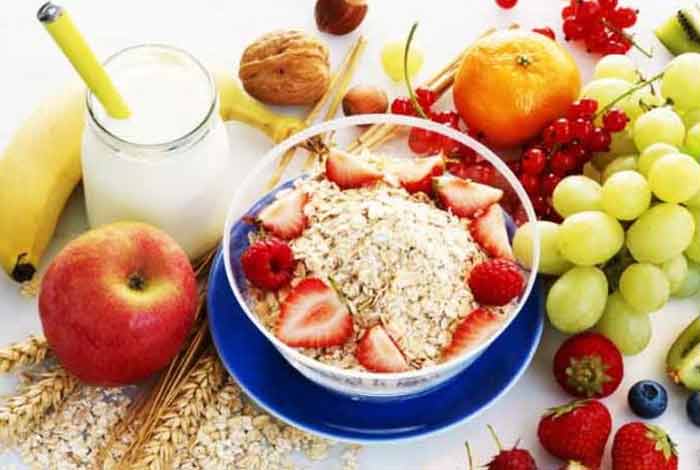
12. Stress Management
Hormones releasedExercise is known to prom under a stressful condition are known to increase sebum production and cause inflammation. This can worsen acne. Also, stress is known to decrease the body’s efficacy to heal wounds by up to 40%. Hence, the body is unable to heal acne scars effectively.
Some relaxation exercises have shown to decrease symptoms of acne outbreaks.
Stress can be managed in the following ways:
- Get enough sleep.
- Engage in physical activity.
- Practice yoga and meditation.
- Deep breathing
13. Regular Exercise
Exercise is known to promote healthy blood circulation; as a result, helps nourish skin cells and regulate hormone production. It also decreases stress and anxiety.
Regular exercise for 30 minutes 3-5 times a week is recommended for adults. This can include hiking, running, weight lifting, jogging and walking.


